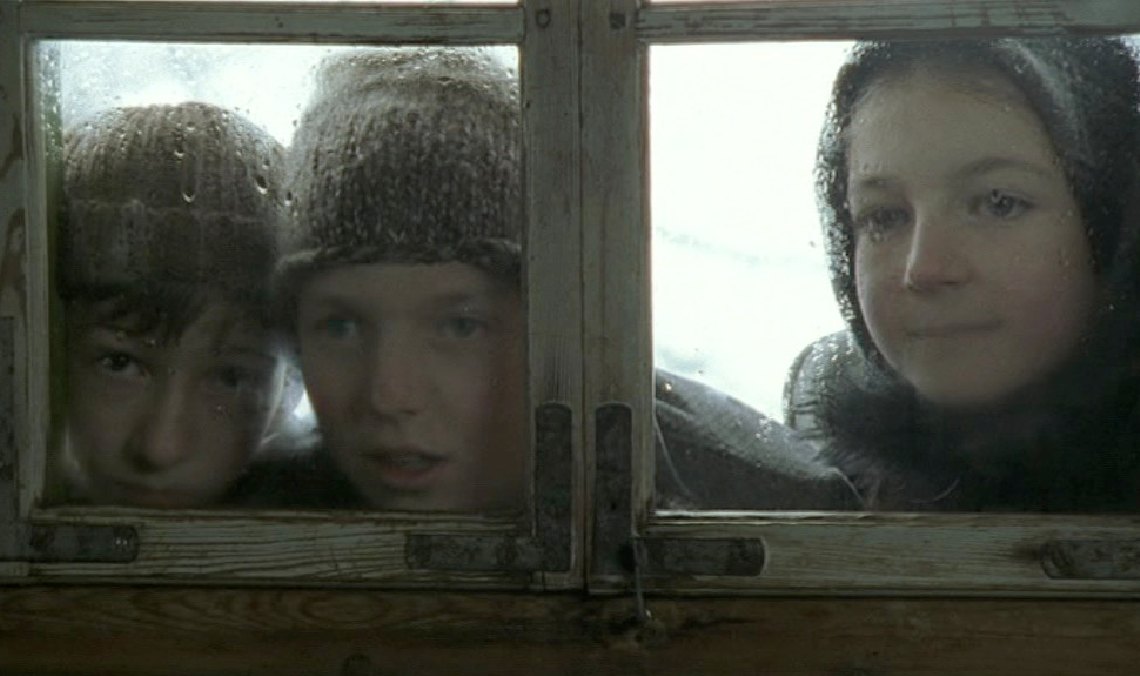
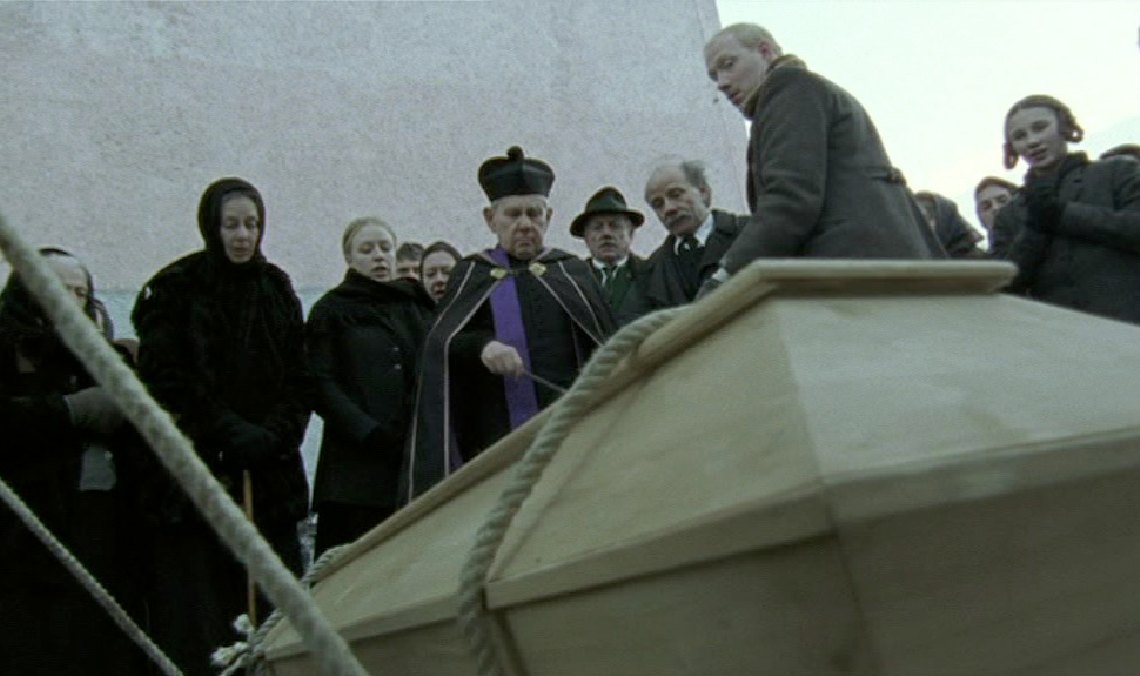
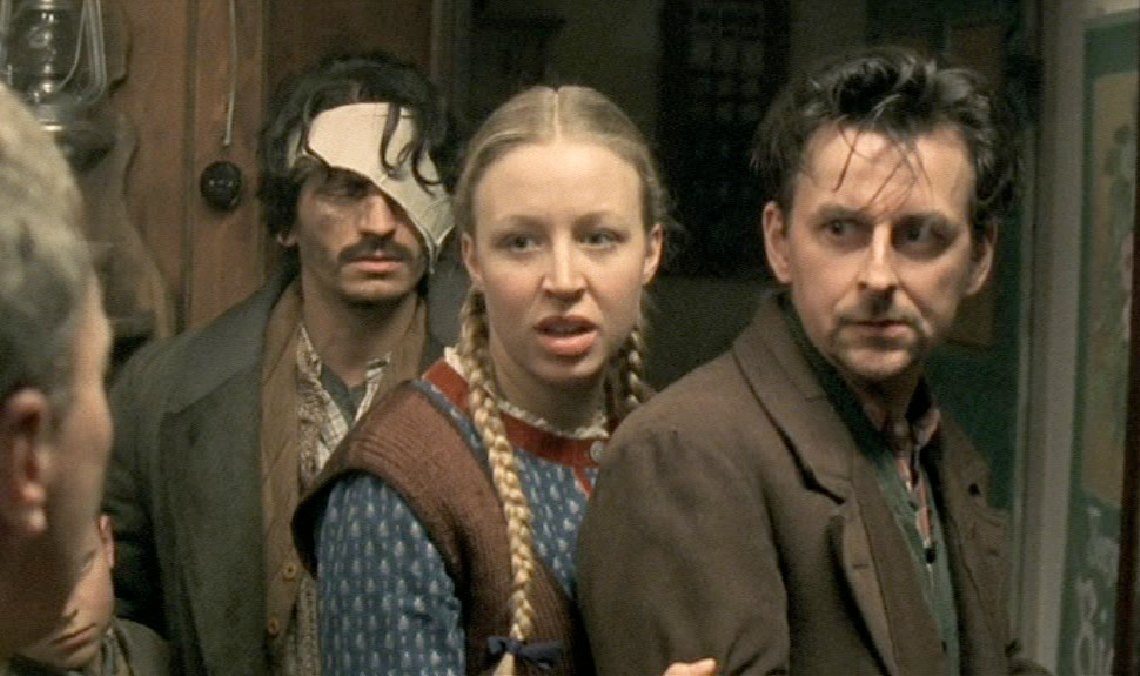
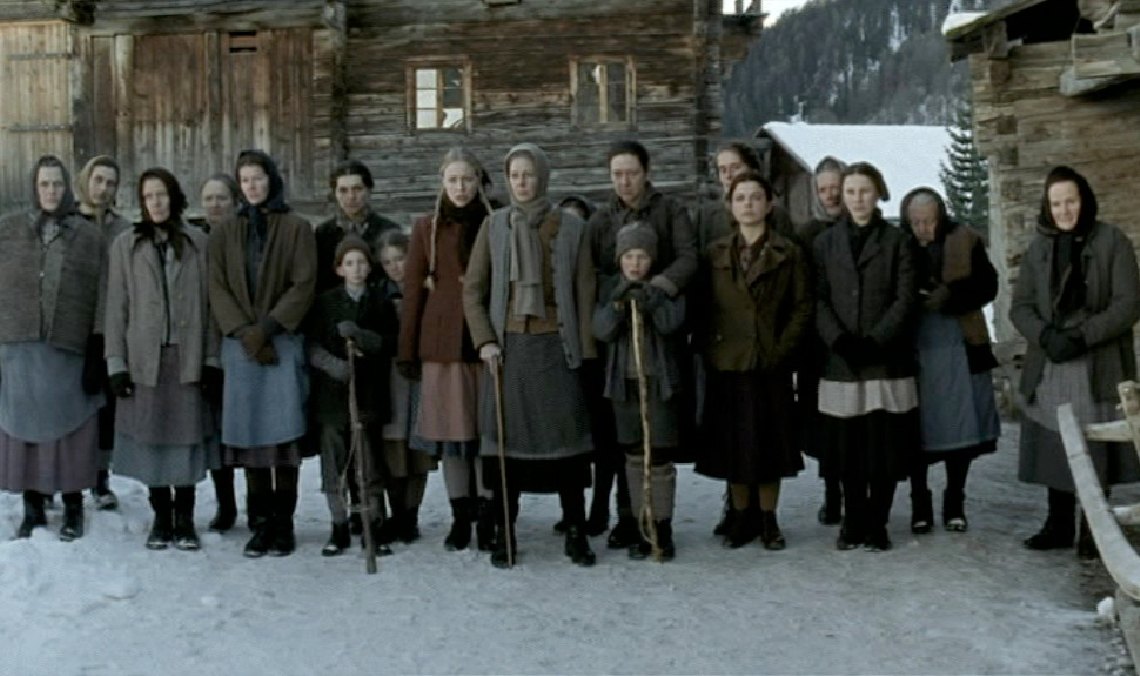
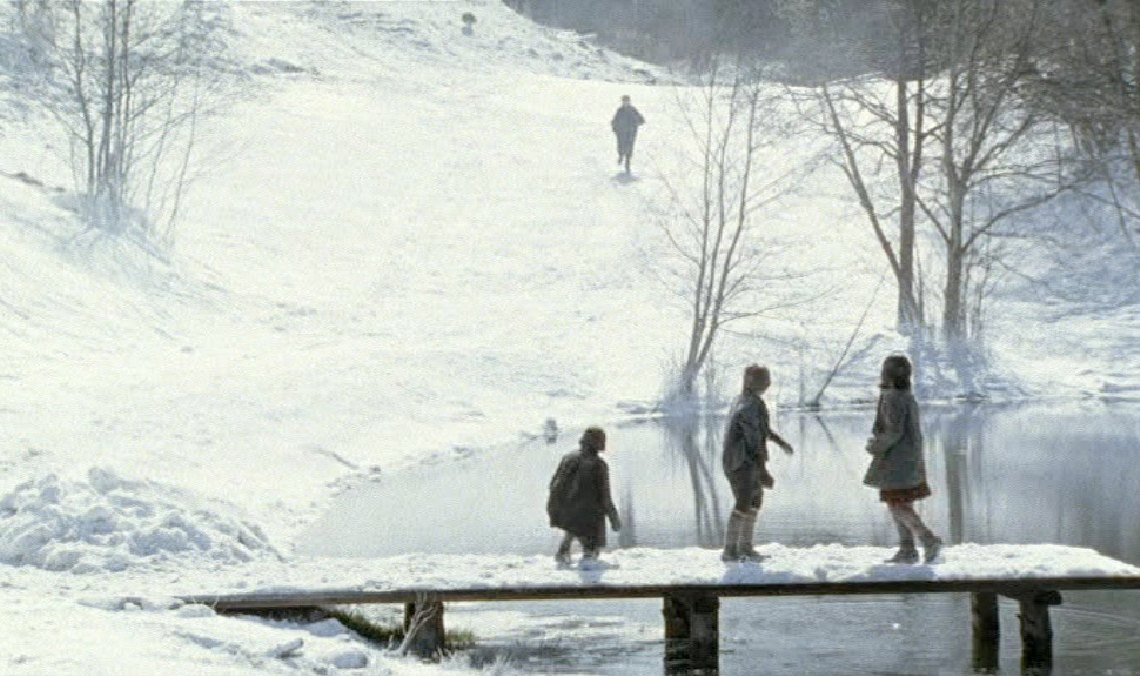

The Silent Bell
The Austrian province of Styria, in March 1945. Based on the stage play by Heinz Rudolf Unger, The Silent Bell tells of the final days of WW II in a mountain village. Although peace is at the doorstep, war is still at the kitchen table.
The forests already belong to the partisans, the roads are still controlled by the remnants of the Wehrmacht.
St. Kilian is covered by snow. The forest ranger shoots at partisans, but they flee. However, their trail leads to the village. Directly to the church. The priest doesn't want anything to do with it, of course.
The SS takes away the church bells of all the villages – to be melted and made into weapons for the final victory. But old Mrs. Lindmoser can only rest in peace when the church bells ring at her funeral. On her deathbed she has promised Adolf a printing of the Guardian Angel if he'd see to it. The boy Adolf from the village, not Adolf the Führer.
So little Adolf rings the bell – to get the guardian angel.
And he needs it urgently. The ringing awakens everyone – cats, dogs, and especially the ratfinks. It's the moment for foul play. Whoever drops his mask too soon just might lose everything. Whatever you do, don't say what you think. Don't tell what you see. Could be dangerous. Change to the winning side. But who will be the winner?
In the end it's the Russians who arrive at the village. Everything and nothing has changed. Everything's under control. Except for the past.
HS
This one I especially like among my films. I put a lot of personal memories – discussions with contemporary witnesses, my studies of political science – into it. Besides, I'm proud that this film clearly proved that so-called "awkward" topics can get very high ratings on TV – if properly dealt with.
The Austrian province of Styria, in March 1945. Based on the stage play by Heinz Rudolf Unger, The Silent Bell tells of the final days of WW II in a mountain village. Although peace is at the doorstep, war is still at the kitchen table.
The forests already belong to the partisans, the roads are still controlled by the remnants of the Wehrmacht.
St. Kilian is covered by snow. The forest ranger shoots at partisans, but they flee. However, their trail leads to the village. Directly to the church. The priest doesn't want anything to do with it, of course.
The SS takes away the church bells of all the villages – to be melted and made into weapons for the final victory. But old Mrs. Lindmoser can only rest in peace when the church bells ring at her funeral. On her deathbed she has promised Adolf a printing of the Guardian Angel if he'd see to it. The boy Adolf from the village, not Adolf the Führer.
So little Adolf rings the bell – to get the guardian angel.
And he needs it urgently. The ringing awakens everyone – cats, dogs, and especially the ratfinks. It's the moment for foul play. Whoever drops his mask too soon just might lose everything. Whatever you do, don't say what you think. Don't tell what you see. Could be dangerous. Change to the winning side. But who will be the winner?
In the end it's the Russians who arrive at the village. Everything and nothing has changed. Everything's under control. Except for the past.
HS
This one I especially like among my films. I put a lot of personal memories – discussions with contemporary witnesses, my studies of political science – into it. Besides, I'm proud that this film clearly proved that so-called "awkward" topics can get very high ratings on TV – if properly dealt with.
